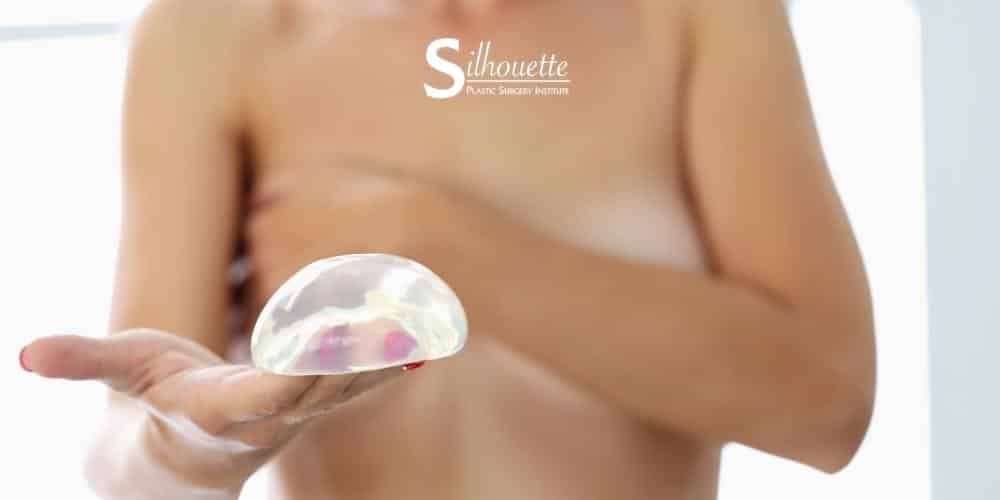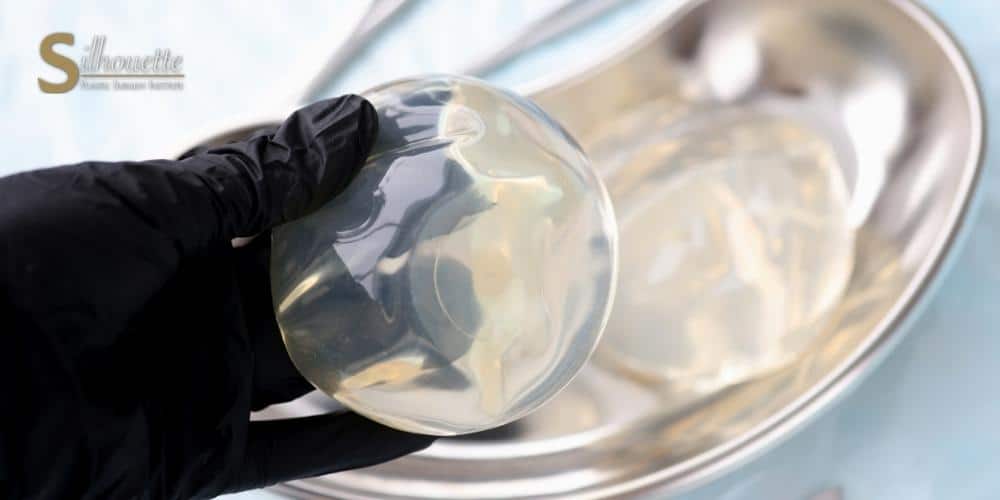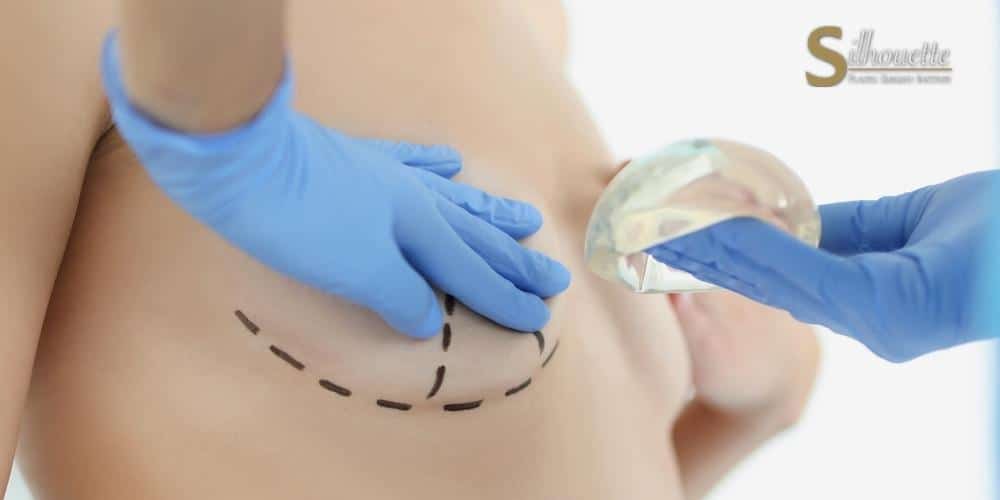Dr. Hootan Daneshmand
Breast Implant Illness (BII)
Breast Implant Illness
In 2020, cosmetic breast augmentation was one of the most popular plastic surgeries in the United States, with more than 193,000 women receiving breast implants according to data from the American Society of Plastic Surgeons. With this many women receiving breast implants on an annual basis, complaints of unexplained systemic symptoms – such as joint and muscle pain, chronic fatigue, hair loss, skin rashes, and more – have certainly grown. This makes countless women with breast implants wonder: Do I have breast implant illness? What can I do to feel better? Below, board-certified plastic surgeon Dr. Daneshmand answers these questions and more.
If you’re experiencing a variety of unexplained symptoms after undergoing breast augmentation surgery – and your systemic symptoms are not related to an autoimmune disease – Dr. Daneshmand may be able to help you by removing your implants. Call 949-359-8397 to schedule an appointment at Silhouette Plastic Surgery Institute today.

What is Breast Implant Illness (BII)?
Breast implant illness (BII) is an un-official medical diagnosis that refers to a variety of unexplained symptoms that many women experience after undergoing a breast augmentation. The condition is also referred to as: silicone implant illness, breast implant disease, and autoimmune/inflammatory syndrome induced by adjuvants (ASIA). Breast implant illness can occur with both saline and silicone breast implants.
Breast implant illness is not an official medical diagnosis because there is so little research about the condition. Therefore, there is so much that medical experts don’t understand about silicone implants and their connection to autoimmune symptoms.
What is BIA-ALCL?
Breast implant-associated anaplastic large cell lymphoma (BIA-ALCL) is a very rare type of cancer. Despite what the name may suggest, it’s not breast cancer. Instead, BIA-ALCL is a type of non-Hodgkin’s lymphoma, which is a cancer of the immune system.
This type of cancer generally forms around the scar tissue near the breast implants. In some cases, though, it can spread to other organs and systems in the body. People who undergo a breast augmentation and receive textured surface implants – rather than smooth implants – have a higher chance of developing BIA-ALCL.
Specific symptoms of BIA-ALCL include swelling, soreness and/or pain in the breasts, a noticeable lump in the breast area, and fluid accumulation (seroma) in the breast.
Other Breast Implant Complications
Before undergoing breast augmentation surgery, it’s crucial to be aware of all the health conditions associated with breast implants. BII and BIA-ALCL are just two health concerns to read up on. Other possible complications include:
- Capsular Contracture occurs when scar tissue surrounding one or both breast implants creates hard, uncomfortable, and distorted breasts. Capsular contracture is possibly the most common type of breast implant complication.
- Breast Implant Rupture or Leakage: This complication is just what it sounds like. Occasionally, breast implants can leak or pop while still inside the breast. This is more likely to happen to breast implants that are several years old. If you’re experiencing swelling, pain, or drastic changes in breast shape and size, your implant(s) may have ruptured.
All of the aforementioned complications and illnesses associated with breast implants sound scary, but it’s important to remember that they only occur in 1% of patients according to the FDA. For the sake of utmost breast implant safety, it’s crucial to see a board certified plastic surgeon like Dr. Daneshmand at Silhouette Plastic Surgery Institute. Because of his skill and experience, you can expect great results and few complications.

What Causes Breast Implant Illness?
Medical experts aren’t exactly sure what causes breast implant illness other than the implants themselves. More research is definitely necessary, but as of now, some experts theorize that BII may be caused by:
- A general negative reaction to breast implant surgery.
- An auto-immune reaction to either silicone or saline-filled implants.
- A biofilm infection, which is when bacteria grows on the surface of the breast implant. This causes the body to respond like it would respond to any other infection.
Symptoms of Breast Implant Illness
Almost every single person with breast implant illness reports different cognitive, gastrointestinal, and even musculoskeletal symptoms. Again, much more research is needed to determine why breast implants may cause such a large systemic inflammatory reaction.
Common BII symptoms include:
- Joint pain
- Muscle pain and weakness
- Mental health issues such as anxiety, depression, panic attacks, and brain fog
- Memory loss
- Insomnia
- Difficulty concentrating
- Frequent headaches
- Chronic fatigue
- Skin problems that can resemble an allergic reaction, such as red rashes and bumps
- Hair loss
- Gastrointestinal problems
- Dry eyes and dry mouth
- Poor vision
- Chronic pain
The symptoms of breast implant illness may begin immediately after your breast surgery, or they may begin years down the road. Everyone has a different experience with this health condition.

Diagnosing Breast Implant Illness
It’s very difficult to diagnose breast implant illness because the symptoms can be very random and very similar to many autoimmune disorders such as rheumatoid arthritis. Additionally, BII symptoms are very similar to the symptoms associated with lyme disease, chronic fatigue syndrome, irritable bowel syndrome (IBS), lupus, hypothyroidism, and even generalized anxiety disorder (GAD).
There is no set diagnostic criteria for breast implant illness. Your doctor may examine your medical history, run a few diagnostic tests, and perform a physical examination. Basically, if your symptoms can’t be explained by any other autoimmune disease or health condition, then it’s possible that you suffer from breast implant illness.
What is the Treatment for Breast Implant Illness?
Treatment options for breast implant illness are very limited. If you really want to keep your implants because you enjoy the appearance of your breasts, you could treat the individual symptoms with medications, supplements, and various other products. But none of this will make BII disappear. The best treatment is to just get the breast implants removed. The best type of implant removal surgery is called an “en bloc capsulectomy,” which is when the plastic surgeon removes both the implant and the capsule in one piece. This way, there is no silicone or biofilm left behind that could possibly move to other parts of the body.
If you decide that breast implant removal is the right option for you, Dr. Daneshmand can help. Many women with breast implants are hesitant to undergo removal surgery because they love the way their breasts look. Additionally, many women know that their breasts will look much flatter and saggier once the implants are removed. Despite how bad they are feeling due to breast implant illness, they still want to feel confident and beautiful in their bodies.
The good news is that you can still have attractive looking breasts after an implant removal. Dr. Daneshmand can still give you perky, symmetrical, beautiful breasts through a breast lift or a breast reconstruction.
When Do Breast Implant Illness Symptoms Go Away After Implant Removal?
The answer to this question varies from person to person. Some women experience immediate symptom relief following their breast implant removal surgery. Meanwhile, some women experience relief several months after their surgery. A 2022 study claims that the three women involved in the study experienced relief from their breast implant illness symptoms within 2 to 8 months post-op.

Call Silhouette Plastic Surgery Institute Today
If you’re experiencing symptoms of BII and you’ve already been tested for autoimmune diseases that share similar symptoms, then you may have breast implant illness. Dr. Daneshmand has more than 30 years of experience in giving his patients the bodies of their dreams. He can relieve you of your BII symptoms through implant removal and still give you beautiful looking breasts. Call 949-359-8397 to schedule an appointment at Silhouette Plastic Surgery Institute today.Anaplastic Large Cell Lymphoma (ALCL)
In 2011, the FDA identified a possible association between breast implants and the development of anaplastic large cell lymphoma (ALCL), a rare type of non-Hodgkin’s lymphoma. At that time, the Agency was aware of approximately 60 cases of ALCL in women with breast implants, out of approximately 5-10 million women who had received breast implants worldwide. This included 34 unique cases that were described in the medical literature from January 1, 1997, through May 21, 2010, and additional cases identified by international regulatory agencies, scientific experts, and breast implant manufacturers. Based on this data, the FDA cautioned patients and health care providers that women with breast implants might have a very low but increased risk of developing ALCL.
The FDA also posted on this website a detailed analysis of the 34 cases of ALCL in women with breast implants, provided physicians with interim recommendations on identifying and confirming ALCL, and worked with breast implant manufacturers to include information regarding ALCL in the patient and physician labeling.
Because the FDA knew of so few cases of this disease, it was impossible to determine what factors increased the risk. In a report summarizing the Agency’s findings, we emphasized the need to gather additional information to better characterize ALCL in women with breast implants.
